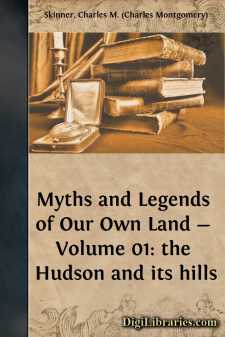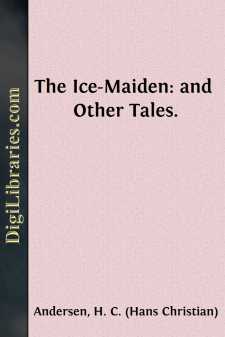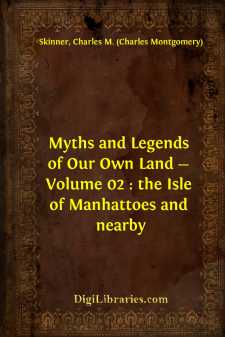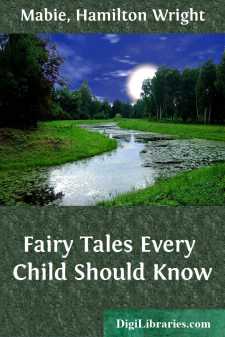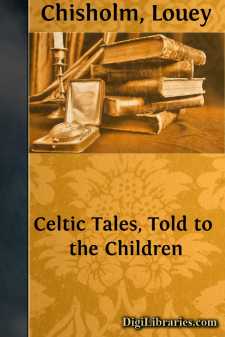Fiction
- Action & Adventure 183
- Alternative History 1
- Biographical 15
- Christian 59
- Classics 6965
- Coming of Age 5
- Contemporary Women 3
- Erotica 8
- Espionage/Intrigue 12
- Fairy Tales, Folklore & Mythology
- Family Life 169
- Fantasy 117
- Gay 1
- General 596
- Ghost 32
- Historical 809
- Horror 43
- Humorous 161
- Jewish 25
- Legal 4
- Medical 22
- Mystery & Detective 315
- Occult 1
- Political 49
- Psychological 41
- Religious 64
- Romance 160
- Sagas 11
- Science Fiction 730
- Sea Stories 113
- Short Stories (single author) 538
- Sports 10
- Suspense 2
- Technological 8
- Thrillers 3
- Urban Life 31
- Visionary & Metaphysical 1
- War & Military 173
- Westerns 199
Fairy Tales, Folklore & Mythology Books
Sort by:
by:
George MacDonald
CHAPTER IWHY THE PRINCESS HAS A STORY ABOUT HERTHERE was once a little princess whoâ"But, Mr. Author, why do you always write about princesses?" "Because every little girl is a princess." "You will make them vain if you tell them that." "Not if they understand what I mean." "Then what do you mean?" "What do you mean by a princess?" "The daughter...
more...
RIP VAN WINKLE The story of Rip Van Winkle, told by Irving, dramatized by Boucicault, acted by Jefferson, pictured by Darley, set to music by Bristow, is the best known of American legends. Rip was a real personage, and the Van Winkles are a considerable family at this day. An idle, good-natured, happy-go-lucky fellow, he lived, presumably, in the village of Catskill, and began his long sleep in 1769....
more...
STORY AND SONG OF THE HE-DHU´-SHKA. It had been a warm September day; and I was resting in my hammock, swung from a wide-spreading tree that stood near the tent of my Indian host. We had partaken of our evening meal beside an outdoor fire. The mother was busy clearing away the supper dishes, the men had gone off to look after the horses, the children had fallen asleep, and I lay watching the shadowy...
more...
I. Let us visit Switzerland and look around us in the glorious country of mountains, where the forest rises out of steep rocky walls; let us ascend to the dazzling snow-fields, and thence descend to the green plains, where the rivulets and brooks hasten away, foaming up, as if they feared not to vanish, as they reached the sea. The sun beams upon the deep valley, it burns also upon the heavy masses of...
more...
by:
Anonymous
The Arabian Nights Entertainments. The chronicles of the Sassanians, ancient kings of Persia, who extended their empire into the Indies, over all the adjacent islands, and a great way beyond the Ganges, as far as China, acquaint us, that there was formerly a king of that potent family, who was regarded as the most excellent prince of his time. He was as much beloved by his subjects for his wisdom and...
more...
THE STORY OF THE THREE LITTLE PIGS. Once upon a time there was an old Sow with three little Pigs, and as she had not enough to keep them, she sent them out to seek their fortune. The first that went off met a Man with a bundle of straw, and said to him, "Please, Man, give me that straw to build me a house"; which the Man did, and the little Pig built a house with it. Presently came along a...
more...
DOLPH HEYLIGER New York was New Amsterdam when Dolph Heyliger got himself born there,—a graceless scamp, though a brave, good-natured one, and being left penniless on his father's death he was fain to take service with a doctor, while his mother kept a shop. This doctor had bought a farm on the island of Manhattoes—away out of town, where Twenty-third Street now runs, most likely—and,...
more...
by:
Maxfield Parrish
PREFACE Little excuse is needed, perhaps, for any fresh selection from the famous "Tales of a Thousand and One Nights," provided it be representative enough, and worthy enough, to enlist a new army of youthful readers. Of the two hundred and sixty-four bewildering, unparalleled stories, the true lover can hardly spare one, yet there must always be favourites, even among these. We have chosen...
more...
INTRODUCTION TO "FAIRIES EVERY CHILD SHOULD KNOW" The fairy tale is a poetic recording of the facts of life, an interpretation by the imagination of its hard conditions, an effort to reconcile the spirit which loves freedom and goodness and beauty with its harsh, bare and disappointing conditions. It is, in its earliest form, a spontaneous and instinctive endeavor to shape the facts of the...
more...
by:
Louey Chisholm
THE STAR-EYED DEIRDRE In olden days, when many Kings reigned throughout the Green Island of Erin, none was greater than the great Concobar. So fair was his realm that poets sang its beauty, and such the wonder of his palace that the sweetest songs of Erin were of its loveliness. In a castle of this fair realm dwelt Felim, a warrior and harper dear unto the King. And it was told him that Concobar with...
more...



